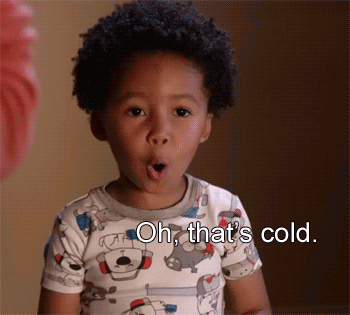Another study showing recruiting ratings correlate to NFL success
The WSJ, in an article listing five steps to increasing a team's NFL draft success, listed #3: "Follow recruiting rankings."--
"Houston’s J.J. Watt is an inspiration for every overlooked recruit in the country. A two-star prospect out of high school, according to Rivals, he has gone on to become a three-time NFL Defensive Player of the Year and a weekly nightmare for opposing quarterbacks.
But NFL teams would do well to remember that such transformations are exceedingly rare. In fact, the players who were rated as top recruits in high school generally do turn into better players in the NFL.
By comparing Rivals recruiting rankings for every player drafted in the past five years with Pro-Football-Reference’s “Approximate Value” (AV), a statistic that quantifies every player’s impact, we found that each bump in star rating is associated with greater success in the NFL.
Five-star players produced nearly twice as much AV per year as two-star players, for instance, and were 5.1 percentage points more likely to have appeared in an NFL game."
http://www.wsj.com/articles/five-easy-steps-for-not-bungling-the-nfl-dr…
More interesting would be if they controlled for draft position to determine if HS rankings still mattered even after you had college performance and camp measurements to consider.
commenting on this subject to the effect of "ratings don't matter cause Mike Hart," or many other examples. This is just one small study on top of at least 50 others, all showing the same thing, but the broad football public hasn't internalized it yet.
That isn't what this study says at all. In fact, the recruiting sites' focus on predicting NFL success rather than college success keeps the rankings from being more helpful than they are. Mike Hart is a great example. The recruiting sites probably would have rated Hart differently if they were thinking about college productivity instead of NFL productivity. People evaluate recruiting sites based on players' NFL careers, though, and Hart wasn't big or fast enough to have a great NFL career. So they didn't rate him very highly despite his insane high school production, and they were right to do so given their primary criterion for evaluating recruits (potential for NFL success). Fortunately, Lloyd saw him as a valuable college RB even though he wasn't likely to do much in the NFL.
I don't mean any of that to say that recruiting rankings aren't predictive of college success. They are. But as true as it is that recruiting rankings matter, it's equally true that people exaggerate and misinterpret the ways in which they matter. They're useful as a general guide, but there are all kinds of situations in which I'd trust a coach's judgment over a recruiting ranking (e.g., fit with scheme, NFL/college potential, character worries, evaluations after scouting players in camps, etc.).
But none of that means that this small study doesn;t add to the weight of evidence
This is like saying that kids who scored highest on their 3rd grade math tests did the best in college, so college admissions committees should start paying attention to 3rd grade math tests. That's somehow both obvious and dumb.
April 29th, 2016 at 11:04 AM ^
It's just that actual Formal Logic is often so confusing to people (as well as cognitive biases).
It's False-Positive versus False-Negative. 5-Star ranking is strong predictor, when you consider the miniscule change of getting to the NFL.
But it doesn't preclude the non-5 stars from getting better.
Development is HUGE. Almost every social/political metric is made useless by the dimension of time, as they are essentially abstractions of only one specific moment.
Basically, what it takes to be a 5-star in H.S. is only one factor in getting to the NFL, but it opens doors to other factors, and is a leg-up on acquiring all the other factors necessary.
for more statistics.
to have appeared in an NFL game [than two star players]."
This statistic is not persuasive. Of course, few college players ever play in the NFL. But on a casual glance, "5.1% more likely to appear in an NFL game" only serves to minimize the difference between 5 star prospects and 2 star prospects.
Yeah, size of the effect doesn't tickle my 5 star bone. They should have used a better metric, like likelihood of playing at least three years in the NFL or something. I'm not sure it would have increased the size of the difference, but this stat is not helping drive their point home.
I don't know how you would ever expect any causal effect. Obviously, being labeled a 5-star doesn't cause anything -- it's just a prediction. I think what you're actually saying is that they haven't proven any explanatory ability of recruiting rankings independent of other explanatory factors that also correlate with recruiting rankings (e.g., college performance, combine performance, etc.). Obviously there's no causation going on here.
Sent from MGoBlog HD for iPhone & iPad
Sent from MGoBlog HD for iPhone & iPad
Sent from MGoBlog HD for iPhone & iPad
Should've told her that's because she's never seen it when you're excited
/s
Sent from MGoBlog HD for iPhone & iPad
Yes but is a causality or causation and does it correlate with linear regression vs concussions?
Sent from MGoBlog HD for iPhone & iPad
Also, if Harbaugh, Urbs, Saban really want a kid, chances are he's a 4 or 5* and pretty good. That's all this proves.
April 27th, 2016 at 10:13 PM ^
April 27th, 2016 at 10:22 PM ^
People don't think it matters because they like underdog stories and the fact that we've had a lot of busts. Coaching matters more but getting the 5 stars helps. Harbaugh does both. For every Mike Hart, there is a Damario Jones.
April 27th, 2016 at 10:26 PM ^
I agree. I'd also love to see a list of Michigan's past "camp offers." Guys like Channing Stribling and Brandon Watson who entered camp without an offer, weren't high-profile recruits, and then received an offer after impressing the coaches. It'd be interesting to see how they've done over the years.
April 27th, 2016 at 11:13 PM ^
A better approach may be to control for the program. For example, does a 5-star at Alabama have a better pro career than a 4-star at Alabama, etc.
But then you run into confounding effects regarding opportunity. A 5* at a big school is probably going to get more of a shot to prove himself than a 2* or a 3* at the same school, especially early in their careers. That might make more of a difference than the difference between the coaching staffs at a big school vs. a small school.
April 28th, 2016 at 10:57 AM ^
April 29th, 2016 at 10:48 AM ^
I don't think it's a matter of 5* prospects starting from their first snap no matter how they perform. I think it's a matter of 5* prospects getting to show their stuff earlier by getting rotations with the first unit.
As an example, Ryan Glasgow didn't get any significant playing time until his third year on campus, even though we weren't exactly flush with dominating defensive linemen in 2012 and 2013. Maybe Glasgow improved a ton in 2014 and 2015 to become the star he is today, but I think it's likely that at least part of the reason is that he was a walk-on, so it took him a while to even earn the right to show what he could do (it's also possible that Hoke ran less of a meritocracy than Harbaugh does). Meanwhile, Will Campbell got significant playing time from the first game of his freshman year, despite not really making any serious contributions, and I have to believe that's because he was a 5* recruit.
April 27th, 2016 at 11:17 PM ^
Sent from MGoBlog HD for iPhone & iPad



